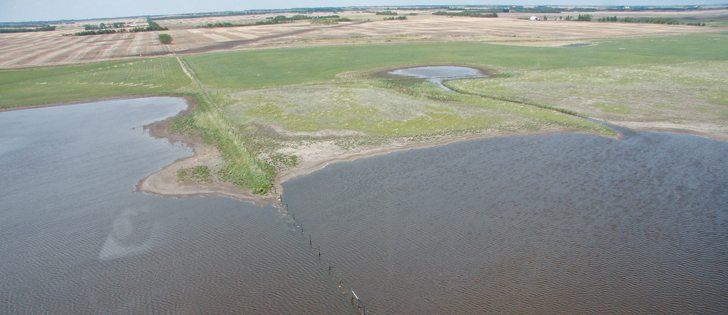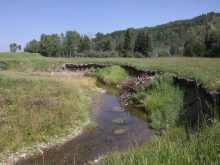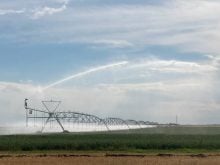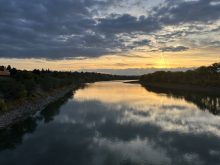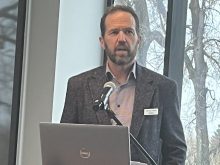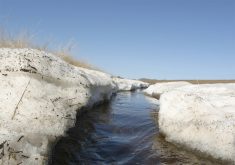New regulations | Respondents said agency should step up enforcement and issue penalties
WHITEWOOD, Sask. — Only 500 people participated in Saskatchewan’s online consultations on agricultural drainage, far below the 1,500 farmers officials had hoped to hear from.
However, the findings from that forum and follow-up meetings are being compiled into a final report, and Doug Johnson, acting executive director of integrated water services with the Water Security Agency, said the government wants new draft regulations as soon as possible.
They could come as early as January, with a policy in place for the next growing season.
“We’re under the gun,” he told the District 1 meeting of the Agricultural Producers Association of Saskatchewan Nov. 4. “We’ve got a lot of work in front of us.”
Read Also

Agri-business and farms front and centre for Alberta’s Open Farm Days
Open Farm Days continues to enjoy success in its 14th year running, as Alberta farms and agri-businesses were showcased to increase awareness on how food gets to the dinner plate.
The agency’s 25-year plan, released two years ago, called for a results-based drainage approval process. The online consultation, designed to help the agency better understand drainage concerns and solutions, was a way for the public to have its say.
Drainage is a contentious issue in rural Saskatchewan, often pitting neighbour against neighbour because many don’t obtain the required approvals to drain and those who are flooded are left to file complaints with the agency.
Johnson said the participation rate was possibly less than expected because some didn’t realize they could be anonymous.
However, key themes emerged.
Most respondents said drainage was not a right.
“They also felt the drainage approval process should be tied to risk,” he said, which means high-risk projects should have stricter approvals than low-risk projects.
For example, draining in terminal basins such as Old Wives Lake or Lake Lenore is trickier than in basins with outlets because there is no place for the water to go if too much enters the system.
Participants also said those who benefit should pay the costs of the drainage works, existing projects that weren’t approved should be required to get approval and the agency should set project design standards and make them available publicly.
Johnson said the respondents want the agency to step up its compliance and enforcement role and support financial penalties and orders to stop work, close works or undertake remediation.
Discussions about wetlands management were mixed, he said.
Eighty-eight percent of respondents support drainage, 78 percent said they were affected by drainage and 70 percent said they had drained water.
Thirty percent had been involved in the drainage complaint process.
Eighty-seven percent believed a new drainage policy is needed.
“What came as a bit of a surprise was how strong the numbers were in some of these areas,” Johnson said.
All the information will be available on the agency website at ww.wsask.ca, and another consultation will be held.
Johnson said there is also significant interest in establishing more conservation and development areas under provincial legislation.
They are formed by a petition of landowners within a proposed area to the minister, which two-thirds of owners must sign.
There are now 90 associations in the province that can design water projects, levy taxes to pay for them and build, own and maintain flood or erosion control projects. They are governed by elected boards.


